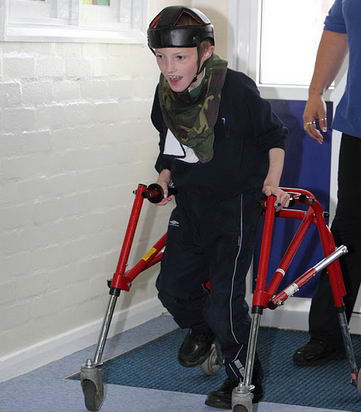
Families with their own needs are often described by schools as being difficult to engage in their child's education. Barriers can be literacy, numeracy or social difficulties, physical or mental health problems, disabilities, etc.
Blewitt et al (2011) cite key issues and barriers, and suggest how schools can address them, increase families' involvement and, as a result, improve children's outcomes. Please read the report to find out more.
Difficulties may be related to perceptions of stigma. Blewett et al (2011) found that both young people and their parents feared being seen as 'not coping' and inadequate:
I have always been brought up to keep things in the family... A family member would say 'leave it' if anyone thought about talking to an outsider.
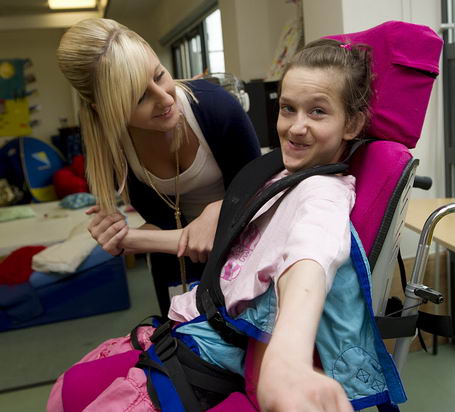
Contact a Family (2003) suggests that 10% of children with a disability live in step families.
Research shows that step-families tend to not make use of family support services, often because they do not perceive themselves as core family members (Smith et al, 2001). This is especially true for young, minority-ethnic and non-resident stepfathers (HMS Treasury and DfE, 2007).
Caring for a child with a disability, together with concerns for their child's future and feelings of isolation from other parents raising children without disabilities, may negatively affect parents' mental health (Lundy, 2011).
Some families...employ poorer coping strategies, which are in turn a predictor
of poorer mental health...
Newman et al, 2010
Hatton et al (2002) found that rates of distress, depression and anxiety among parents from BME communities were up to ten times higher than comparative UK populations.
Early intervention improves the mental health, relationships and emotional
wellbeing of parents.
Newman et al, 2010
Positive parental relationships enhance the overall well-being of parents of children with disabilities, and the following may strengthen them:
- Understanding their child's disability.
- Training in communication and conflict resolution.
- Assistance in defining their individual roles and responsibilities related to the child with a disability.
- Informal social support (e.g. peer support groups).
- Access to counselling.
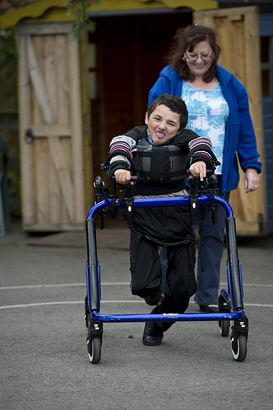
Disabled parents are an invisible group (Disabled Parents Network ; http://www.disabledparentsnetwork.org.uk/ ), often hampered by unhelpful or negative attitudes and poor accessibility (Maguire et al, 2009).
Brunner and colleagues (2009) suggest that schools consider how they:
- Support disabled parents to be involved.
- Provide good, accessible communication.
- Make changes to school leadership and ethos.
- Help parents to disclose impairments.
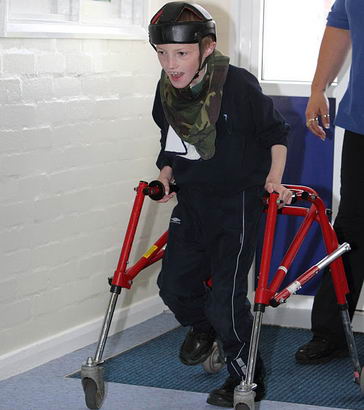
...I do have a sort of feeling of being ashamed of having difficulties. It's
not something I talk about...so it's quite good that somebody understands...why I'm not there. Its having...[parent support
adviser] giving a wee phone call and saying oh how are you.
A parent, in Brunner et al, 2009
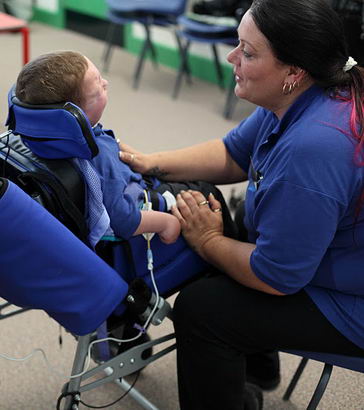
- Practical and professional help.
- Their views to be taken seriously.
- To be treated as partners.
- Services to be supportive, respectful and considerate.
(Quinton, 2004)
They also want 'to feel in control in dealing with parenting problems' and 'first wanted information to help them solve problems and then specialist advice' (Morris and Wates, 2006).
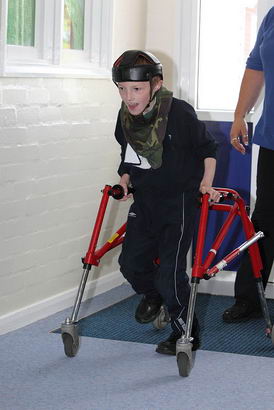
One parent suggests:
...it's probably beneficial for [parents with] every kind of disability...to
actually walk round the nursery or a primary school, or whatever, when there are no children... to know whether you can get
through with your guide dog or whether you can fit your wheelchair through doors...
A parent, in Brunner et al, 2009
It is the parents themselves who have the knowledge about 'what they need and how they function best and what would help the most' (Booth and Booth, 2003).
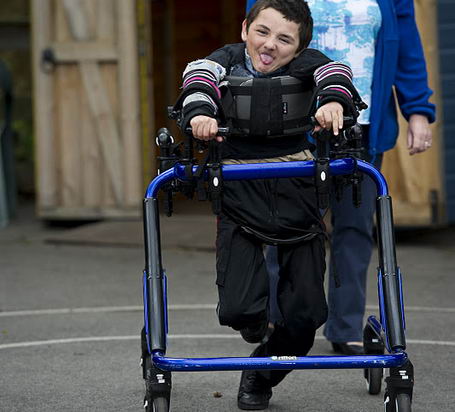
What are the minority and cultural issues for parents in your school?
Select your priority area, and critically review practice-based solutions, drawing conclusions for your own setting.

Blewett, J., Noble,J., Tunstill, J. and White, K. (2011) Improving Children's Outcomes by Supporting Parental Physical and Mental Health, London: C4EO.
Online at: http://www.c4eo ... /physical_mental_health_full_knowledge_review.pdf
Booth, T. and Booth, W. (2003) Self-advocacy and supported learning for mothers with learning difficulties, Journal of Intellectual Disabilities, 7 (2), 165-193. Online at: http://www.supportedparenting.com/projects/SLPpaper_Final_copy.pdf
Brunner, R., Maguire, R., Stalker, K. and Mitchell, J. (2009) Supporting Disabled Parents' Involvement in their Children's Education: Good practice guidance for schools, reading: CfBT Education Trust (available at http://www.leeds.ac.uk/disability-studies/archiveuk/maguire/2500_Guidance_5.pd).
Carpenter, B. and Russell, P. (2005) Early intervention in the UK: current policy and practice, in: Guralnick, M. (ed.) A Developmental Systems Approach to Early Intervention: National and international perspectives, Baltimore, MD: Paul H. Brooke.
Contact a Family (2003) Relationships between parents who have a disabled child: a survey of over 2,000 parents in the UK: a summary, London: Contact a Family,
online at: http://www.cafamily.org.uk/pdfs/relationshipsurvey.pdf
Hatton, C., Akram, Y., Shah, R., Robertson, J.M. and Emerson, E. (2002) Supporting South Asian Families with a Child with Severe Disabilities: Executive summary, Lancaster: University of Lancaster, excerpt online at: http://www.lancs.ac.uk/shm/dhr/publications/asianfamexec.pdf
Kelly, A. (2009) A step beyond parenthood: Taking on a special-needs child, Mail Online, online at: http://www.dailymail.co.uk/home/you/article-1227208/A-step-parenthood-Taking-special-needs-child.html#ixzz1hDD2AxvH
Lundy, H.F. (2011) Parental stress, socioeconomic status, satisfaction with services, and family quality of life among parents of children receiving special education services, (Counseling and Psychological Services Dissertations No. 64), Atlanta, GA: Georgia State University. Online at: http://digitalarchive.gsu.edu/cps_diss/64
Maguire, R., Brunner, R., Stalker, K. and Mitchell, J. (2009) Disabled Parents' Involvement in their Children's Education: An examination of good practice, Reading: CfBT Education Trust, online at: http://www.leeds.ac.uk/disability-studies/archiveuk/maguire/2500_DPReport_5.pdf
Morris, J. and Wates, M. (2006) Supporting Disabled Parents and Parents with Additional Support Needs, London: Social Care Institute for Excellence, online at: http://www.scie.org.uk/publications/knowledgereviews/kr11.pdf
Newman, T., McEwen, J., Mackin, H. and Slowley, M. (Barnardo's Policy and Research Unit) (2010) Improving the Wellbeing of Disabled Children (up to Age 8) and their Families through Increasing the Quality and Range of Early Years Interventions. London: Centre for Excellence and Outcomes in Children and Young People's Services (C4EO), online at: http://www.c4eo.org.uk/themes/disabledchildren/increasingquality/files/c4eo_improving_the_wellbeing_through_early_years_full_knowlege_review.pdf
Quinton, D. (2004) Supporting Parents: Messages from research, London: Department of Health/Department for Education and Skills.
Smith M., Robertson, J., Dixon, J., Quigley, M. and Whitehead, Z. (2001) A Study of Stepchildren and Step-parenting, London: Thomas Coram Research Unit.
Wolfendale, S. (2000) Special needs in the early years: prospects for policy and practice, Support for Learning, 15 (4), 147-151.